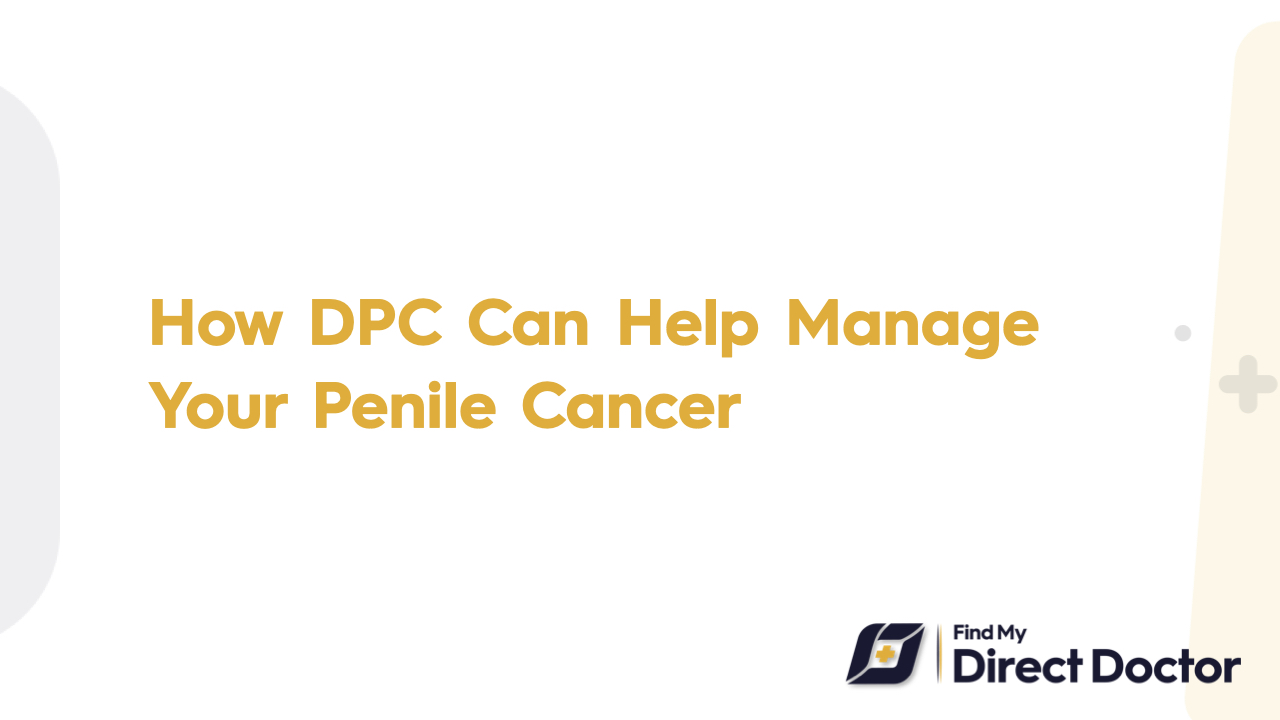



The skin or the cells lining the inside of the penile shaft are typically affected by penile cancer, an uncommon kind of cancer that arises in the tissues of the penis. The most typical sign is a growth or sore on the penis, which may not hurt at first but may eventually become painful or bleed. Swelling, drainage, and variations in the skin's color or thickness are other signs. The lymph nodes in the groin region may expand in certain situations. Effective treatment of penile cancer depends on early identification, thus people should consult a doctor if they observe any strange changes in their genital area.

By offering continuous, individualized treatment and frequent follow-ups, Direct Primary Care (DPC) can play a significant role in the management of penile cancer. Patients gain from regular connection with their healthcare practitioner through DPC, which enables them to keep an eye on any changes in their condition, provide emotional support, and offer advice on treatment alternatives. People with penile cancer can swiftly and effectively obtain the resources and care they require thanks to DPC's patient-centered approach, which also makes early intervention easier and helps manage any side effects or difficulties that may occur during treatment.
For patients with penile cancer, DPC provides a number of advantages, such as improved access to medical care and individualized treatment regimens. With DPC, patients have more time with their provider to talk about treatment options and continuing care, whereas appointments in a standard healthcare system may be short and rare. More regular monitoring is another benefit of this paradigm, which can be crucial for identifying any changes in the patient's condition. Furthermore, DPC patients gain from fewer obstacles to healthcare, which guarantees prompt access to specialists, tests, and therapies, improving results and reducing stress during the course of treatment.
Each patient in DPC receives care that is customized to meet their specific needs thanks to the personalized management of penile cancer. DPC providers collaborate closely with patients to create customized treatment programs that take into account the patient's preferences, overall health, and cancer stage. Frequent check-ins and consultations enable ongoing treatment modifications as needed, addressing any difficulties or adverse treatment effects. In the end, this individualized approach improves patients' quality of life by fostering trust and guaranteeing that they receive the finest care available for treating their disease.
Previous Post